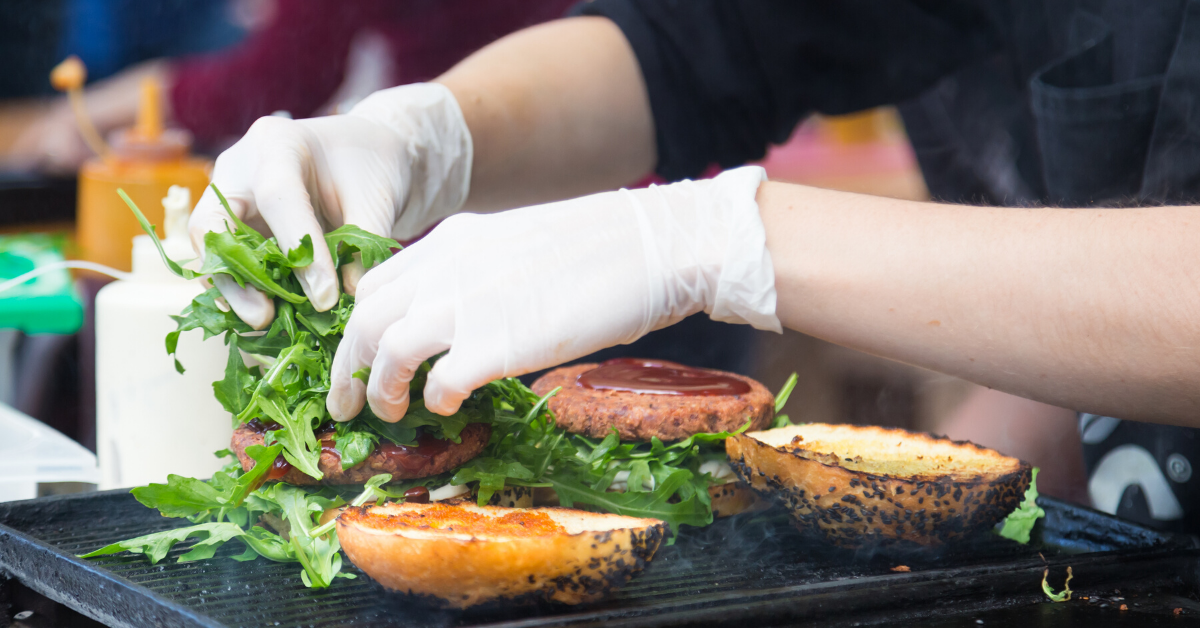Whether you are making a quick trip to the grocery store or buying something at the pharmacy, the new normal means leaving the house with a mask and a pair of gloves. To you and most Americans, worries of cross-contamination may be a fairly new thing, but for food allergic people this fear has been a part of their lives for much longer. Discover why cross-contamination of food is so dangerous.
How Easily Can Cross-Contamination of Food Happen?
You might think gloves will keep you protected from COVID-19, but they won’t work if you don’t wash your hands each time you touch something. Molly Lixey, a former ER nurse, demonstrates this problem in a short video. As she holds her phone, scratches her nose, and grabs her wallet, Molly has inadvertently contaminated everything she touched while using gloves. This is a frightening situation that could also happen when food accidentally comes into contact with food allergens.
If you think of life before the pandemic, gloves are often used to prepare meals in places like delis, sushi joints, or salad bars. Many food service workers have the mindset that wearing gloves is enough to keep guests safe, but this is not the case. When a food allergic person orders at a deli, a staff member might slice a loaf of bread in half, lay down some ham, and grab a slice of cheese. Just like in Molly’s video, if they make a mistake or come in contact with the wrong item, it will be too late as they accidentally contaminated all these foods. Without paying extra attention, a life-threatening food allergic reaction could happen. This is a risk that most restaurants are aware of and fortunately many precautions are being taken.
For those in the restaurant industry that understand the concerns of food allergic guests, we appreciate your efforts in keeping cross-contamination for food allergies at bay. If you are looking for more ways to reassure the well-being of your food allergic guests, we invite you to join our webinar – CertiStar: The Modern Approach to Food Allergies. Learn more about our individualized menus and how we make food allergy conversations quick and easy.

